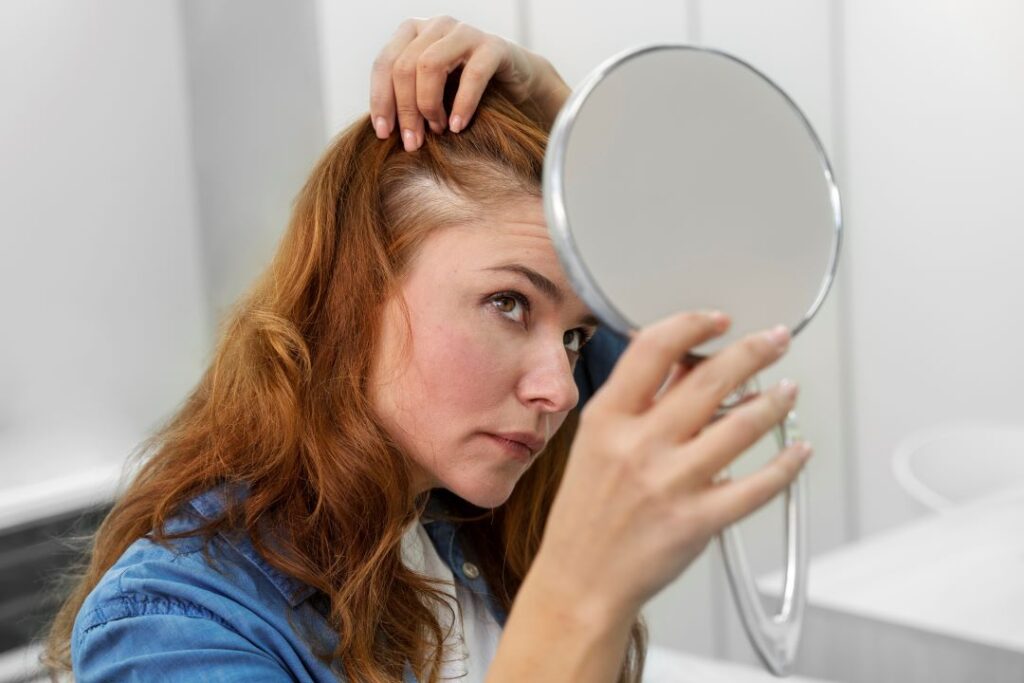Taking care of damaged hair can be a challenge, but with the right treatments and tips, you can restore its health and shine. Whether your hair is suffering from heat damage, color treatments, or environmental stress, there are effective solutions. Let’s explore how to treat damaged hair to bring back its natural beauty.
Understanding Hair Damage
Before diving into treatments, it’s essential to understand the causes of hair damage. Common culprits include overuse of heat styling tools, chemical treatments, and exposure to harsh weather conditions. Frequent washing and harsh shampoos can also strip your hair of its natural oils, leading to dryness and breakage.
Deep Conditioning Treatments
One of the best ways to treat damaged hair is through deep conditioning. Look for conditioners rich in proteins and natural oils, such as argan or coconut oil. These products help repair damaged cuticles, making your hair smoother and stronger. For optimal results, apply a deep conditioner once a week and leave it on for at least 20 minutes.
Avoid Heat Styling
Heat styling tools like straighteners, curling irons, and blow dryers can exacerbate hair damage. If you must use heat, always apply a heat protectant spray beforehand. Additionally, try to reduce the frequency of heat styling and allow your hair to air dry whenever possible. This gives your strands a break from the constant stress of heat exposure.
Trimming Regularly
Regular trims are essential for treating damaged hair, especially when it comes to getting rid of split ends. By trimming every six to eight weeks, you prevent split ends from traveling up the hair shaft and causing further damage. If you’re in Irving or Euless, you can find local salons that offer trims to help maintain the health of your hair.
Use a Leave-in Conditioner
Incorporating a leave-in conditioner into your haircare routine can provide your hair with the moisture it needs to stay soft and manageable. Leave-in conditioners create a protective barrier that shields your hair from environmental stressors, such as UV rays and pollution, while also detangling your strands. Look for formulas that are lightweight but packed with nourishing ingredients.
Opt for Sulfate-Free Shampoos
Many shampoos contain sulfates, which can strip your hair of its natural oils. To treat damaged hair, switch to a sulfate-free shampoo that is gentle on your scalp and strands. These shampoos help preserve your hair’s moisture, keeping it hydrated and less prone to breakage.
Hair Masks for Extra Care
Hair masks are a powerful way to treat damaged hair and should be a part of your regular haircare routine. Opt for masks that contain natural oils, keratin, or biotin to strengthen and repair damaged hair. You can also create DIY hair masks at home using ingredients like avocado, honey, and olive oil.
Protect Your Hair from the Sun
The sun’s UV rays can cause damage to your hair just like they do to your skin. If you’re spending time outdoors in Irving or Euless, wear a hat or use a UV-protectant spray to shield your hair. This helps prevent dryness, fading of color-treated hair, and overall damage from the sun.
Stay Hydrated and Eat Well
Hydration and a healthy diet play a crucial role in hair health. Drinking plenty of water and consuming a diet rich in vitamins, especially vitamins A, C, D, and E, helps support strong and healthy hair growth. Foods rich in omega-3 fatty acids, such as salmon and flaxseeds, can also boost hair health.
Conclusion
Treating damaged hair is all about incorporating the right practices and products into your routine. From deep conditioning to regular trims, these steps can help repair damage and promote healthier hair. Remember, consistency is key, and your hair will gradually improve over time. For residents in Irving and Euless, consider visiting local salons for professional advice and treatments.
If you’re ready to transform your damaged hair into soft, healthy strands, contact 504Salons today to schedule a consultation. Our experts are here to help you achieve the hair of your dreams.
FAQs
1. How often should I deep condition to treat damaged hair?
You should deep condition your hair at least once a week. For severely damaged hair, consider increasing the frequency to twice a week. Deep conditioning treatments provide the necessary moisture and nutrients to repair and restore damaged hair, leaving it softer and healthier over time.
2. Can I still use heat styling tools if I’m trying to treat damaged hair?
While it’s best to avoid heat styling tools during the treatment process, you can still use them occasionally with caution. Always apply a heat protectant spray before using any heat tools, and try to lower the temperature settings. The less heat exposure your hair has, the quicker it will recover.
3. What are the best ingredients to look for in hair masks for damaged hair?
Look for hair masks that contain natural oils like argan oil, coconut oil, or avocado oil. Keratin, biotin, and aloe vera are also great for repairing and strengthening damaged hair. These ingredients help restore moisture, repair the cuticle, and promote healthier hair growth.
4. How do regular trims help with damaged hair?
Regular trims remove split ends, preventing them from traveling up the hair shaft and causing further damage. By trimming every six to eight weeks, you maintain the health of your hair, reduce breakage, and promote healthier growth. This is especially important if you’re trying to recover from extensive hair damage.
5. Can a poor diet contribute to damaged hair?
Yes, a poor diet lacking essential nutrients can contribute to hair damage. Hair requires vitamins and minerals such as biotin, vitamin E, and omega-3 fatty acids to stay strong and healthy. Eating a balanced diet rich in these nutrients can help repair and prevent damage, resulting in shinier, stronger hair.
